Back to Business
What does it takes to make your employees feel safe when returning to work during a pandemic?
When it comes to returning to the workplace as state lockdowns ease, one of the big issues businesses confront is a shortage of Personal Protective Equipment such as masks, gloves, hand sanitizer, cleaning supplies and for some, isolation gowns to keep their employees safe from the virus.
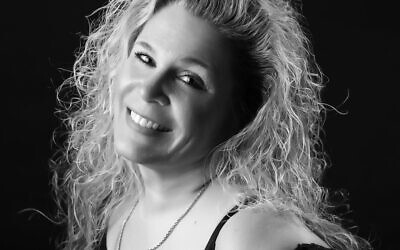
The AJT, like others, has struggled to find PPE, according to Kaylene Ladinsky, managing publisher and editor. “Everything is back-ordered by three or four weeks,” she said.
To keep up with requests for PPE, a national healthcare consultant, who helps owners of durable medical equipment firms and others comply with government regulations and billing issues, joined forces with a company that specializes in making and importing orthotic braces.
The two Atlanta-based businesses, Jane’s Healthcare Management and Unite Medical are using Georgia manufacturers to help satisfy the demand for PPE in the state. Their PPE business has tripled since starting in early March, when the shelter-in-place mandates in the country began. They provide a variety of hand sanitizers, masks, face shields and isolation gowns, which are more protective than typical hospital gowns, repel secretions and are used in medical, restaurants and salons, she said.
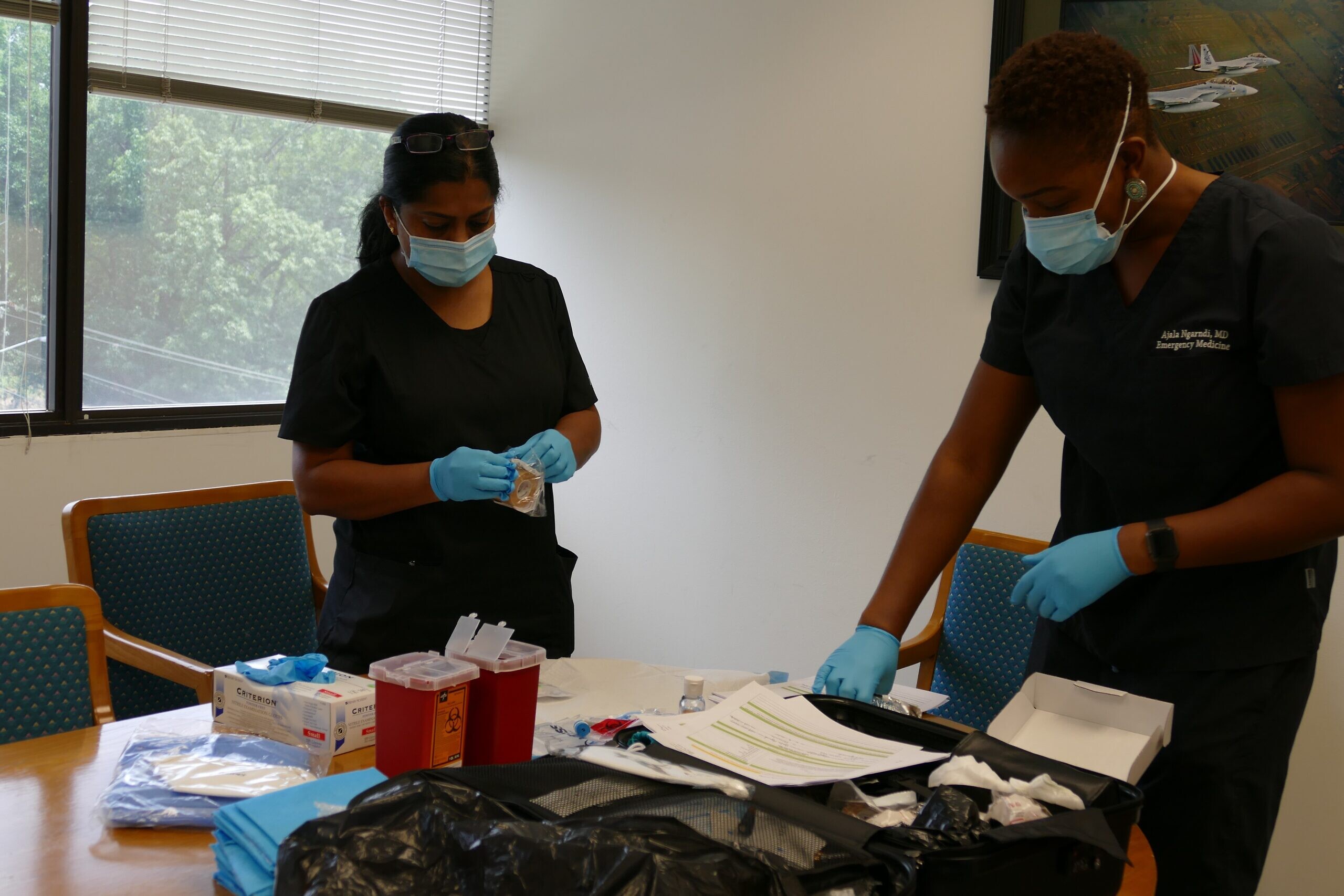
“From the very beginning a lot of clients were asking me where to get PPE,” said Jane Wilkinson-Bunch, CEO of her eponymous healthcare management firm. She speaks and consults nationally in her field of expertise. “I had a captive audience I knew I could help. The whole reason was to help my providers stay safe.”
Many of her clients, at that time, were essential healthcare workers who wanted to protect their employees according to FDA and CDC regulations. Some were from other states that were not yet on lockdown, she said. Since then, her business has expanded to include restaurants and hair salons “just trying to survive the pandemic,” and according to the CDC, that’s going to be for quite a while, she said.
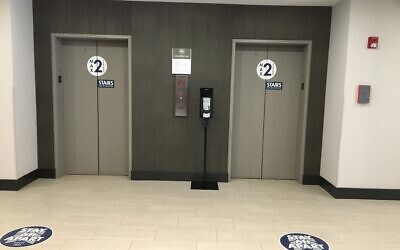
“We want to make sure we take care of our own. This is the reason we really got into this,” she said of the PPE business she formed with United Medical owner Damon Reed to meet the needs of local companies.
The AJT had been back to our office for two weeks as part of the national effort to return to work after the global pandemic shuttered businesses and forced employees to work from home. Despite vigilant disinfecting, the use of masks and gloves, and access to hand sanitizer at every turn – with most employees in their own individual offices – some employees expressed concerns about returning too soon.
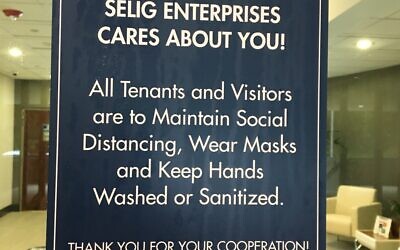
I should add that our building, owned by Selig Enterprises, also required masks in the building and was diligent to hang signs throughout to maintain distancing, with hand washing recommendations and limits to numbers in bathrooms and elevators.

To offer employees further peace of mind, AJT Owner-Publisher Michael Morris sprung for the top-of-the-line testing service by The I.V. Doc, a New York-based company with U.S. and international offices formed in 2013 to offer I.V. hydration through personalized medically administered treatment.
The company had just started its Atlanta office in November, three months before COVID-19 took hold of America. To meet the needs of its clients, it expanded in April to offer testing for the virus. The AJT was the first in Atlanta to receive their in-office COVID-19 testing services.
Ladinsky said I.V. Doc reached out to her about using their services, and she thought it was a “great option to make sure the staff felt comfortable in their work environment. It gives them that much more reassurance that we are taking the extra step.”
The process was quite simple. On Tuesday, June 2 we were told about the testing and the next day, The I.V. Doc asked us not to eat or drink for 30 minutes before our appointment and we either signed up online for a time slot to be pre-screened or were asked a series of questions prior to our individual testing. The screening questions included an assessment of significant medical history, current symptoms and medications, travel outside the country and any known exposure to anyone who had tested positive for the virus. I, for one, had none of each.
Soon after arriving in our office, a masked and gloved Dr. Ajala Ngarndi, The I.V. Doc Atlanta division medical director, and a registered nurse, set up a makeshift medical testing site in our conference room. They used germicidal wipes to clean the table, lay a disposable pad as an extra barrier of protection under my arm and began the process of testing. First, I was asked to fill out a form with basic information and again state my symptoms, agree for the results to be used for research purposes and the standard Health Insurance Potability and Accountability Act (HIPPA) health information use and discloser consent form.
The medical duo then took a vial, 3 ml of my blood, to be tested for antibodies, generated by the body in response to COVID-19 infection.
This test can be used to determine recent or past exposure, which tends to offer protection from the virus, but doesn’t mean you’re immune for the rest of your life, according to The I.V. Doc website.
The results, sent to the Access Medical Labs in Florida, are received back in as little as 48 hours.
If the viral swab test is positive, someone who is asymptomatic could potentially spread virus, Ngarndi said. She recommends quarantining at home for 14 days before being retested.
“If the patient exhibited symptoms, treatment would be focused on controlling the symptoms such as fever, muscle aches. There is no FDA approved medication proven to directly cure the COVID-19 infection, but research is still ongoing. If symptoms were severe such as shortness of breath, the patient would be recommended to the ER for medical assessment.”
The company typically sends a hard copy in the mail or in a sealed envelope delivered to the office. We received copies sent by secured encrypted email following HIPPA guidelines, she said.
The difference between this testing and other free or low-cost ones available at point-of-care testing locations, Ngarndi explained, is that this one looks at DNA for the virus and they look at common proteins attached to virus, losing some sensitivity and specificity. She said the main benefit of having a doctor consultation and a registered nurse come to a client’s home or office is it reduces exposure at testing sites to high-risk chronic diseases.
You pay for the convenience and luxury of one-on-one time with the medical professionals readily available to explain the process and results, answer questions and recommend possible treatment options if warranted in an atmosphere that is comfortable and not rushed as might be the case at a testing site, Ngarndi said.
“There’s a lot of information on the internet. It can be confusing.”
Morris said he chose the more expensive testing because this has more reliable results instead of other tests that might have “a fair number of false negatives.”
The results should make employees “feel more comfortable if they know we’ve succeeded in the last three of four months” of keeping COVID at bay. “It lets everyone know we’ve done the right things.”
The overall consensus from employees following testing was that they were appreciative of management considering their anxiety and going the extra mile to ensure their comfort and safety in the workplace.
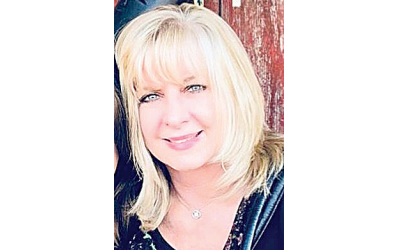
Brenda Gelfand, a senior account manager and one of the longest-serving employees, said she thought getting tested was “personally a great idea, to find out myself if I have antibodies.” But she cautioned getting a false sense of security if all the tests come back negative. “I don’t think the office should relax because we are having this done. People can walk in any day with the virus. I don’t want people to think we are all good after this.”
After her test, Gelfand called the medical testers “very professional” and said that although it’s difficult to find her veins to take blood, “it didn’t hurt.” After learning of the results she reiterated, “It doesn’t mean nobody can get it in the future.”
Community relations director Jen Evans expressed similar sentiments about the procedure. “I did not feel pain. … We can go outside and get COVID even if swabbed. If you know you’re a carrier or had before, you are cognizant about that.” Meanwhile she believes her daughter, who has been participating in protests in Athens, should be tested weekly to ensure she doesn’t contract the virus.
“I thought it was amazing,” said our newest employee, Amy Seidner, community events and PR manager. “It was thoughtful and considerate and made me feel so much more comfortable. It was a step above what was expected.”

Lilli Jennison, creative and media designer, said it was nice to know all the tests came back negative and she was grateful for the opportunity to be tested in what felt like a germ-free environment with quick results and without leaving the office. “I have a friend that took a test with the county [DeKalb] and he’s not gotten his results back, and we got ours so fast,” she said, adding that “we still need to be careful.”
After learning of the actual results, he said, “I’m glad to see that we all, as a mini community here, clearly have been cognizant of our social responsibility throughout self-isolation. I’m glad we are all clearly on the same page; we have all done the right things.”
Was it a worthwhile financial commitment? Morris seems to think so. “Since most people in the company chose to do this, it’s a good investment.”
- Coronavirus
- Testing
- COVID-19
- Community
- Jane’s Healthcare Management
- Unite Medical
- Jane Wilkinson-Bunch
- Selig Enterprises
- Centers for Disease Control and Prevention
- News
- Atlanta Jewish Time
- Personal Protective Equipment
- Dr. Ajala Ngarndi
- Kaylene Ladinsky
- CDC
- Michael Morris
- The I.V. Doc
- Access Medical Labs



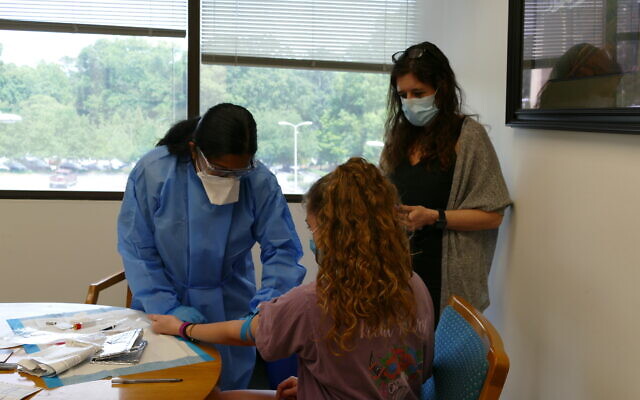
comments